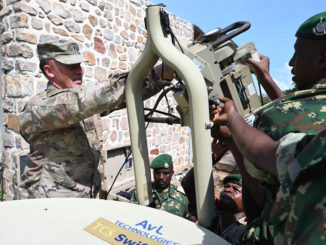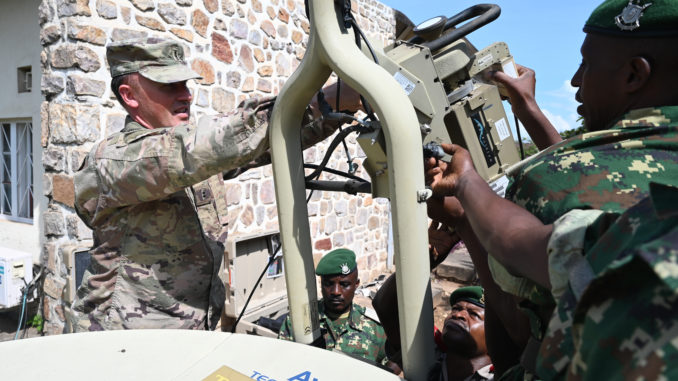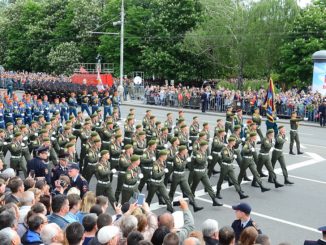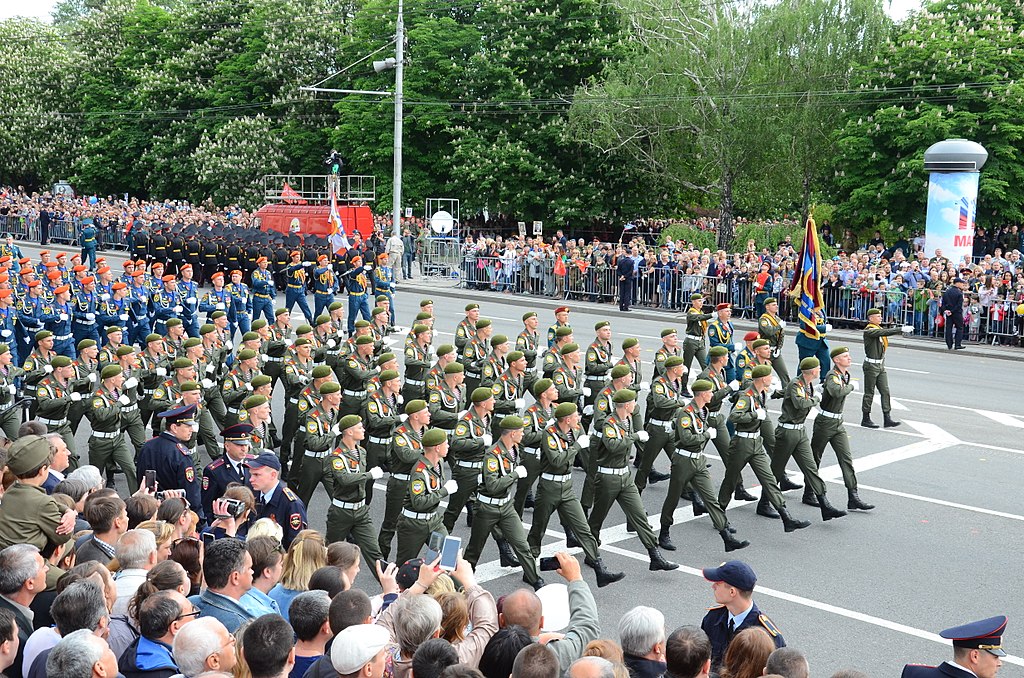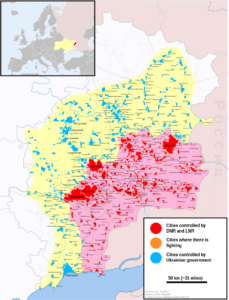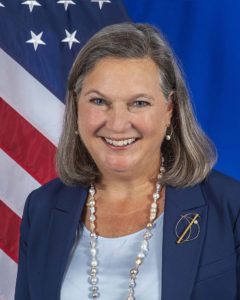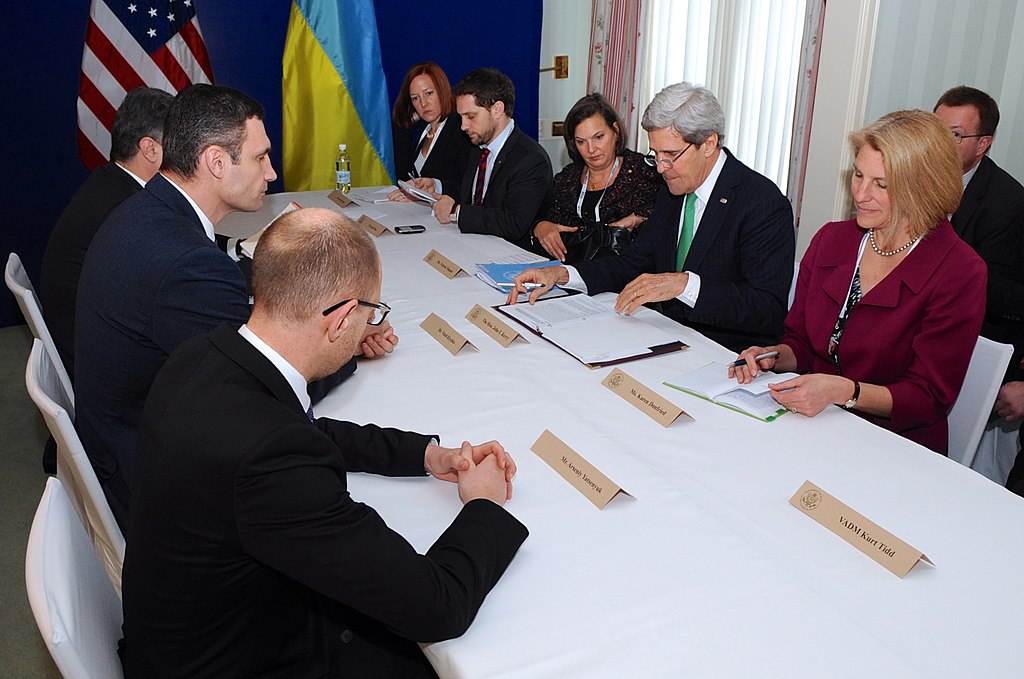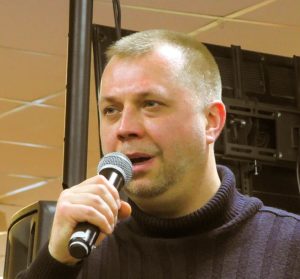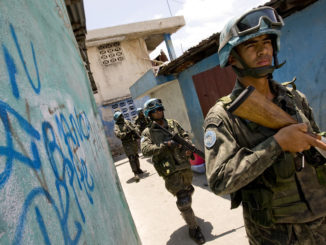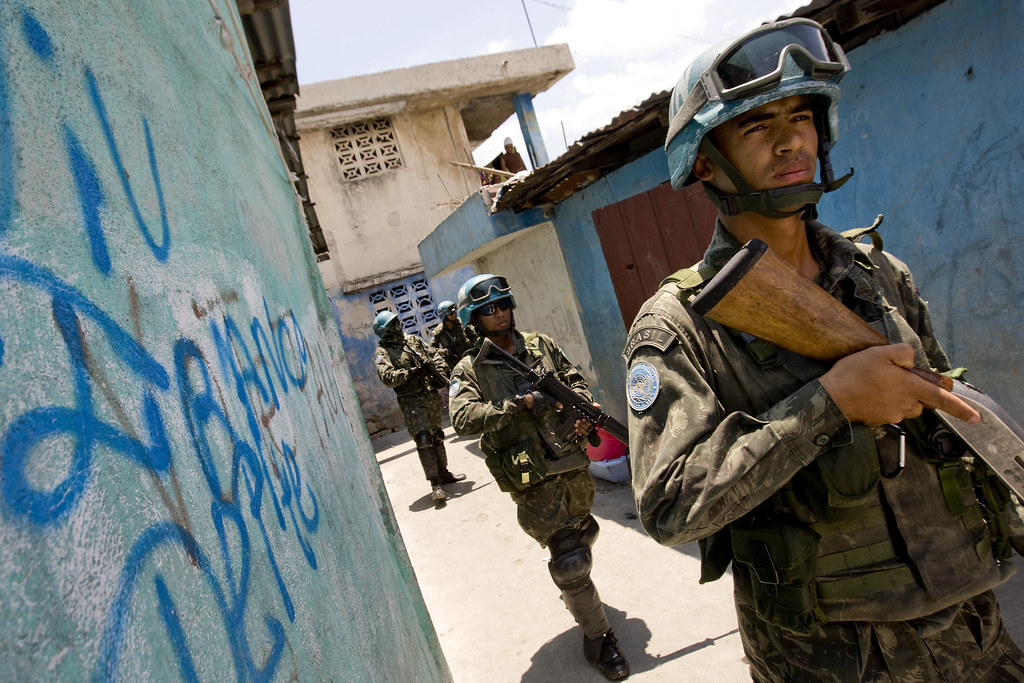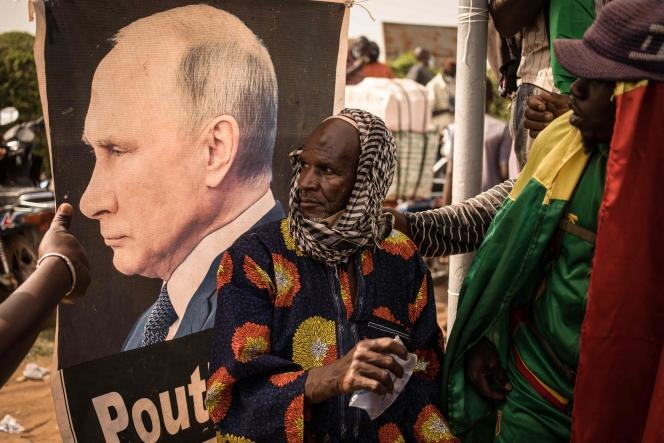
Editor’s Note: This interview was originally heard on Radio Sputnik’s “By Any Means Necessary.”
SPEAKERS
Dr. Fred M’Membe, Sean Blackmon, Jacqueline Luqman (Toward Freedom board member)
Sean Blackmon: We’re happy to be joined for this conversation today by Dr. Fred M’Membe, president of the Socialist Party of Zambia. Dr. M’Membe, thanks so much for joining us.
Dr. Fred M’Membe: Thank you very much for inviting me on your show.
Sean Blackmon: Absolutely. And, Doctor, of course, we’ve been following on the show very closely the rapidly escalating war in Ukraine, this proxy war between U.S./NATO forces and Russia. And we’ve been keeping a close eye on the international response to this war, as you know, the U.S. and the West, its allies and junior partners, you know, try to present this image as if, you know, the whole international community is sort of a siding with them in condemnation of Russia’s invasion of Ukraine in February of this year. But I feel like once you take a closer look at how some of these opinions and perspectives from different governments are really playing out, I think the picture is a bit more complicated. Now. Back in March, in the United Nations there was a debate over resolution fundamentally to condemn Moscow for its invasion of Ukraine. And within that vote, 35 countries abstained from it, including 17 member states of the African Union. And there have also been leaders like the Cyril Ramaphosa of South Africa, that have not necessarily uh, jumped on the western bandwagon with this as well. And so we wanted to bring you want to sort of discuss this, because, from your perspective, obviously, you’re there in Zambia a country in a southern Africa, and I’m just wondering why you think we’ve seen these kinds of responses from some of these different African governments towards the war in Ukraine. And what do you think it says about the reality of geopolitics right now.
Dr. Fred M’Membe: First, let me say, it is very important to understand that no war is good. It is impossible not to be moved by the outrageousness of warfare. They grow some fears of civilians who are trapped between choices that are not their own, but was make very complicated historical processes that appear to be simple. The war in Ukraine is not merely about NATO, or about ethnicity. It is about many things. Every war must end at some point. And the diplomas must restart must come in. Africa and the Russian people share a history of struggle. When the African people were fighting for their independence for their liberation, those who are condemning Russia today, we are not with them [then]. They were on the other side. They never took our site. Not that our side was wrong. Our side was right. But they never took our side. They took the side of the colonialists. They took the side of the side of apartheid, they took their side of racist superiority against the forces of liberation, African liberation. We’ll never forget that. They want us to forget that, but it’s not easy to forget that. Because it’s not very long ago. Zimbabwe only became independent in 1980. Namibia only became independent in 1990. This is not very long ago, in terms of historical processes. We know who stood with the apartheid regime in South Africa. We know who stood with the racist regime in Rhodesia, now, Zimbabwe. We know who sided with the colonialists in Angola, in Mozambique, in the Cape Verde. We know all these things. So the African people have a sense of history as well. It’s not possible for Africans to condemn Russia, given where we are coming from together. And the Russian war is a complicated process. Let’s not be simplistic about it, Let’s understand where this process is coming from. Since 1990, there has been an attempt to expand the NATO forces in Eastern Europe, up to Russia. There was some cooperation, initially, even from Russia itself, under Boris Yeltsin, there was some engagement. But all that has changed. And it is important to understand that long history and the Africans understand that. We are able to analyze things for ourselves, we are able to see things for ourselves, we are able to come to our own conclusions. And also we understand the decisions and actions of our enemies, and also the decisions and actions of our friends. We are even able to understand the mistakes of our friends, and to separate them or single them out to identify them from the actions and decisions of our enemies. We know who our friends are. The Russian people have stood on our side. Russia has never had colonies in Africa—that must be understood. Despite helping to liberate us, Russia has never taken control of any African country. Russia has never colonized any country that they helped to liberate. Russia has not exploited an African country. We do not know of any country in Africa that can claim it was a colony of Russia, [claim that] it has been exploited and humiliated by Russia. This history is very clear to us. And this is not easy for us to be swayed by propaganda against Russia. We don’t want the war in Ukraine to continue as Africans. War is bad. War is not good for the poor. War is not good for the workers. War in itself is a crime. War produces crimes. Peace must always be a priority. We Africans want the war in Ukraine to end. But that won’t to end without taking into account the security concerns of Russia, and indeed, the security concerns of Ukraine itself. And even the security concerns of Europe itself. It shouldn’t be the security of one section, or one region or one country, the security of all must be considered. The security of Ukraine must be considered, the security of Russia must be considered. And indeed the security of Europe. Emphasizing on just one side of the equation, it won’t work. You cannot have security for Europe, you cannot have security for Ukraine without taking into account the security concerns of Russia. Similarly, you cannot have the security concerns of Russia addressed without taking into account the security concerns of Ukraine, the security concerns of Europe. We all need our security. As we pursue our own security interests, we also must take into account the security concerns of others. This is what is lacking in the issue of Ukraine. Russia has legitimate security concerns. And it just didn’t walk into Ukraine. From 2004, they have been actively pursuing these issues. But instead of addressing them, the opposite has happened. NATO has been expanding its lines, NATO has been trying to consolidate its positions in Eastern Europe, up to the Russian border. What did you expect Russia to do, sit idle and watch? Its security concerns not being addressed? Its security being violated? Its security being threatened? Would the USA or Europe accept that situation? Who in the world would accept that to happen?
Jacqueline Luqman: You know, what you just said that that brief encapsulation of the history of solidarity really, that the Russian people and that the Russian government has had with the African liberation struggles over the decades is so important, I think to this conversation, because I think in some ways, we in the United States, even though we who are our Pan Africanist, understand and know a little bit of that history, most people do not so most people don’t understand and don’t know, they’re ignorant of the struggle against colonialism on the African continent. So they’re ignorant of the abuses, and they’re ignorant of their relationship with Russia and the continent. And in that context, do you think that the it’s that ignorance of this relationship that you just explained, that makes it difficult for us in the United States to understand why African nations are refused to condemn Russia and also why we have a difficult time, pulling back from literally cheering this war to continue In order to “support” Ukraine, as our government tells us, without having any consideration for the lives of the people who are caught in the middle of this war, as you said, who do who did not choose it, and who did not ask for it, most of whom are working class and poor people on the continent of Africa.
Dr. Fred M’Membe: Sometimes, it’s not only the issue of ignorance, sometimes the issue of arrogance, and the problem sometimes even racist attitudes. What is good for the goose is good for the gander. What’s good for America is also good for others. America would not tolerate what it wants Russia to tolerate on its borders. If Russia was to move into Mexico today or into Canada, and they do what the Americans and the Europeans are trying to do in Ukraine, I don’t think they would tolerate that. We have the 1962 Cuban Missile Crisis. Cuba is 90 miles away from Florida. But when the Soviet Union placed missiles there, there was a big crisis, which had to be resolved amicably. Why should Russia feel secure? With Ukraine, becoming a NATO member, and placing missiles on his border? These are issues that need to be guaranteed. What we need is adherence to the Minsk agreements. What is needed is security guarantees for Russia and Ukraine, which would also require Europe to develop an independent relationship with Russia that is not shaped by U.S. interests. There will also be need to have a reversal of Ukraine’s ultra-nationalist laws, and they return it to a much more plurinational… national compact. If in some sense negotiations and agreements regarding these essential matters do not materialize, it is likely that the dangerous weapons will face each other across the divides. And additional countries may be drawn into this conflict with a potential to spiral out of control. We don’t want this conflict to get out of control. There is a need for negotiations to end this war. And the negotiations, in our view center around the three principal issues. They’re returning to the Minsk agreements, security guarantees for Russia and Ukraine, reversal of ultra-traditionalist laws. This is not demanding too much. Of course, these are not simple issues. But there are issues that need to be addressed.
Sean Blackmon: For sure. And you know, last question, Dr. M’Membe is, you know, we’re in a time from the standpoint of a U.S. imperialism, as it sees itself engaging in great power conflict, both with Russia and China and the African continent seems like, it’s sort of poised to become a real battlefield for this new Cold War. And so, for the African continent for all of its linguistic and cultural and ethnic and geographic diversity, how do you see sort of the role of the continent in the coming period as we continue to see efforts to, you know, bring about a world order that isn’t controlled from Washington.
Dr. Fred M’Membe: For our diversity, for the difference [uninteligible] among us, one thing that we all need is peace. We need peace to develop, we need peace to move people out of poverty. We don’t want to be drawn in[to] any Cold War, or any other war. We don’t want war. We have had enough. We have been humiliated for over 600 years. We were hunted as slaves traded as slaves. We were colonized. We moved from classical colonialism, neocolonialism. All these humiliating things. We have had enough of our torture, we have have had enough crucifixion. It’s time for Africa also to have its resurrection. And that resurrection cannot come under a Cold War. That’s why our position is of non-alignment. We have the right to pursue our own interests, while others also have the right to pursue their own interests. But one thing that is in common is we need a peaceful world. All our people need a peaceful world. The Americans need to live in peace, the Europeans need to live in peace. The Africans need peace. The Russians need peace, all need peace. Everything that threatens peace threatens all of us. It threatens our peaceful existence here. And it also threatens our progress. War is destructive. It destroys wealth. It destroys production, it increases poverty, it increases despair. It brings suffering it brings pain. We don’t need this. We have had enough. We want to develop and developing peace. And we don’t want to be shackled to wars that are not ours. These are not wars that are ours or benefit us. But we are there to try and offer solutions because every war, no matter how small it is, it has got ripple effects. It affects not only the primary people involved in it, but there are also secondary implications. We don’t want war.
Sean Blackmon: Absolutely. Well, we thank you so much, Dr. M’Membe, for joining us today. We’re going to leave it there and move to a break here on “By Any Means Necessary
on Radio Sputnik in Washington, D.C.

